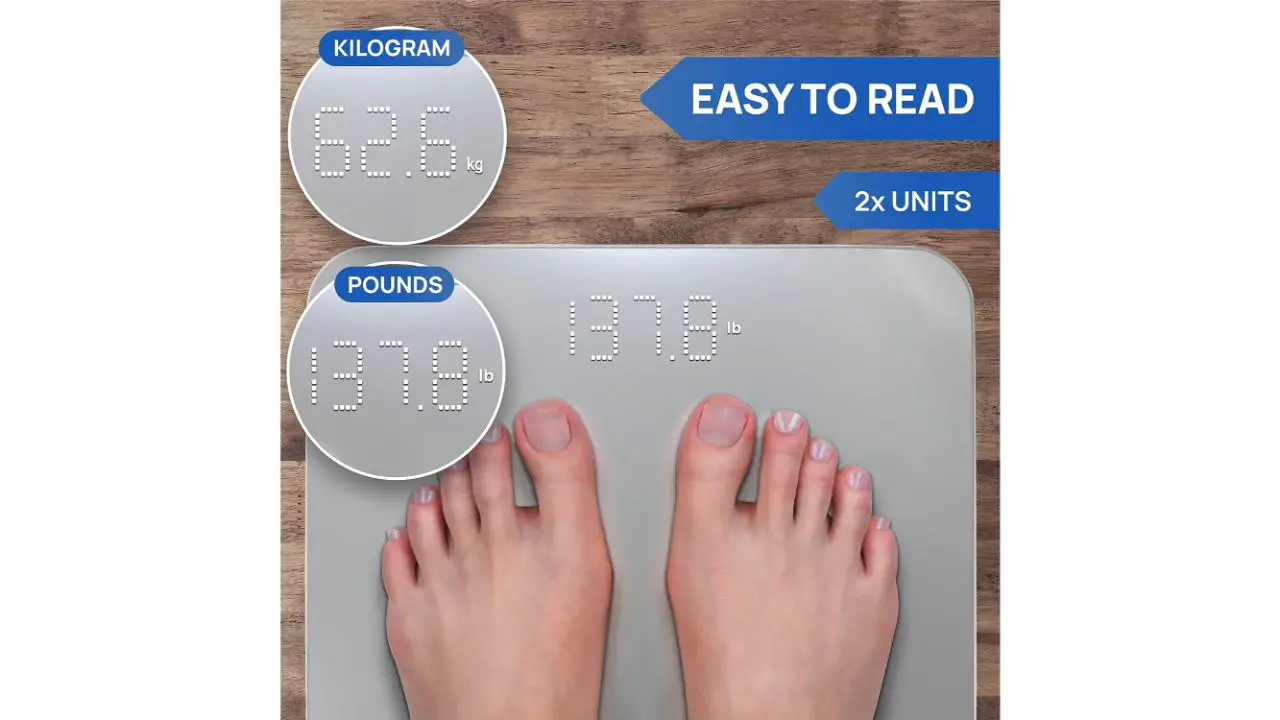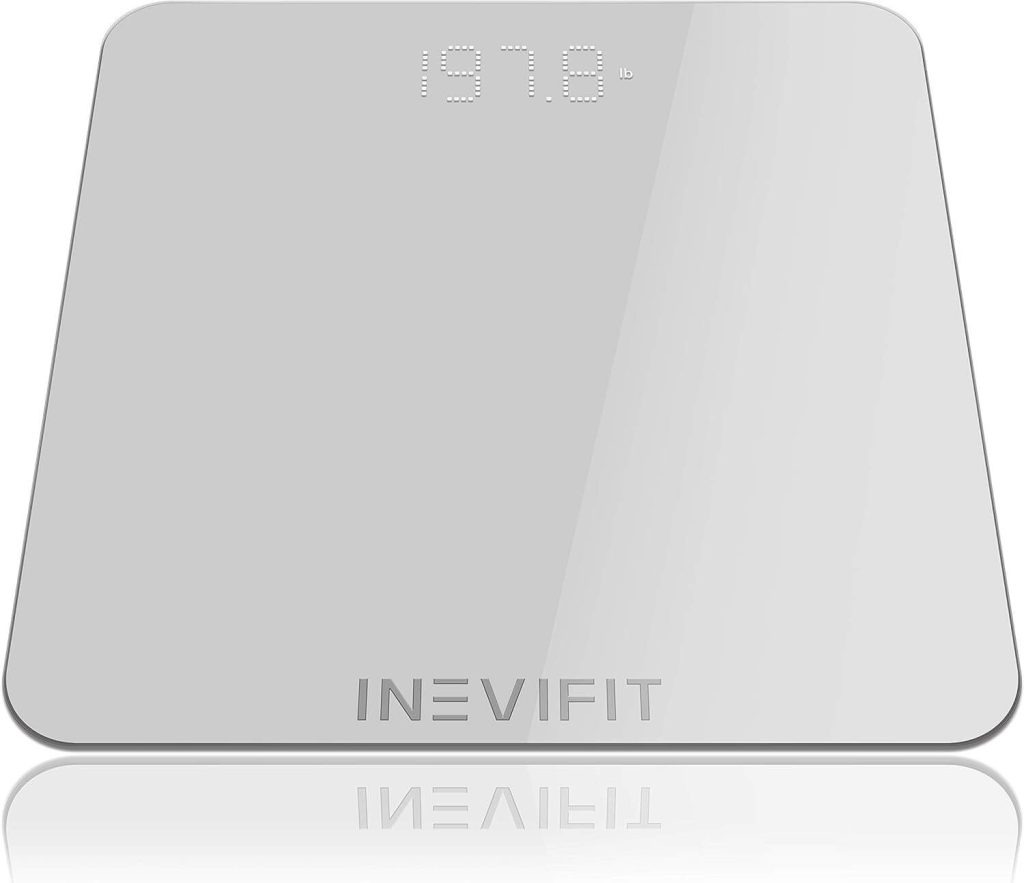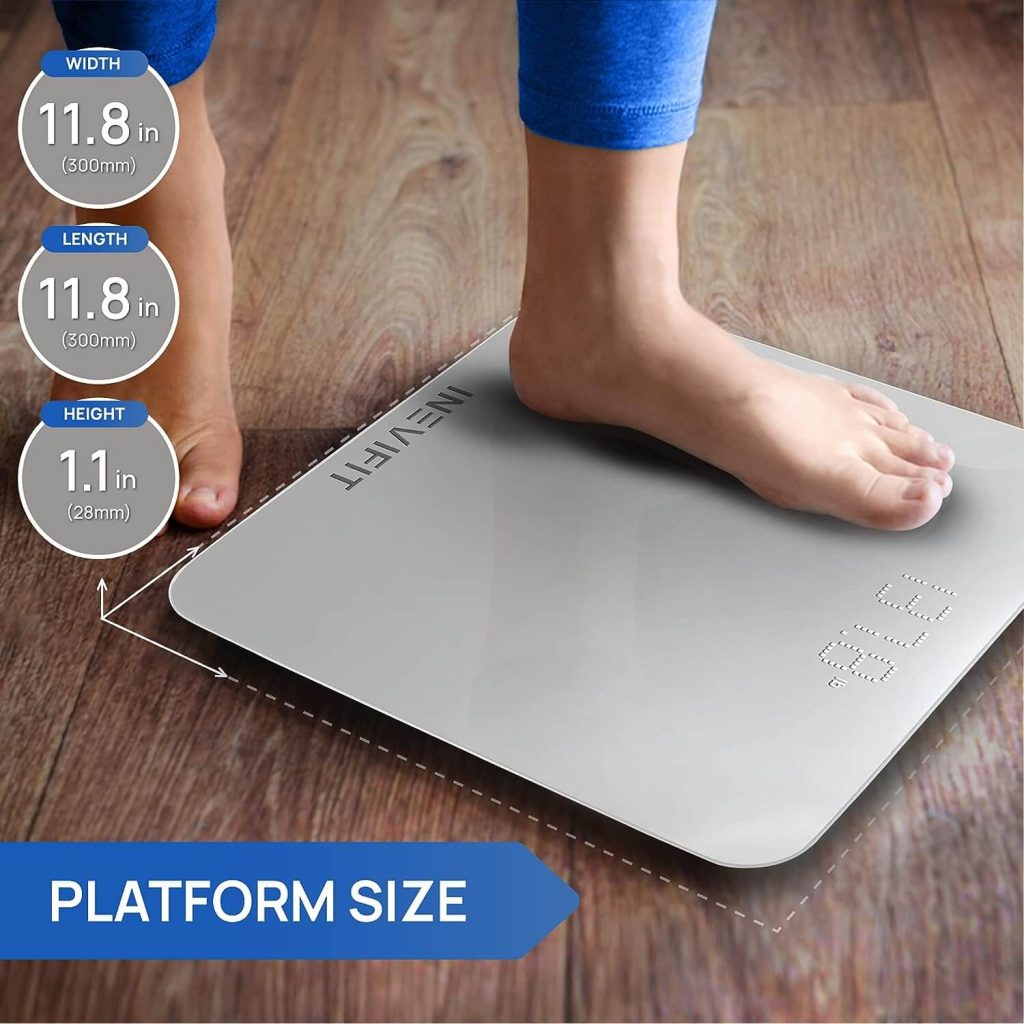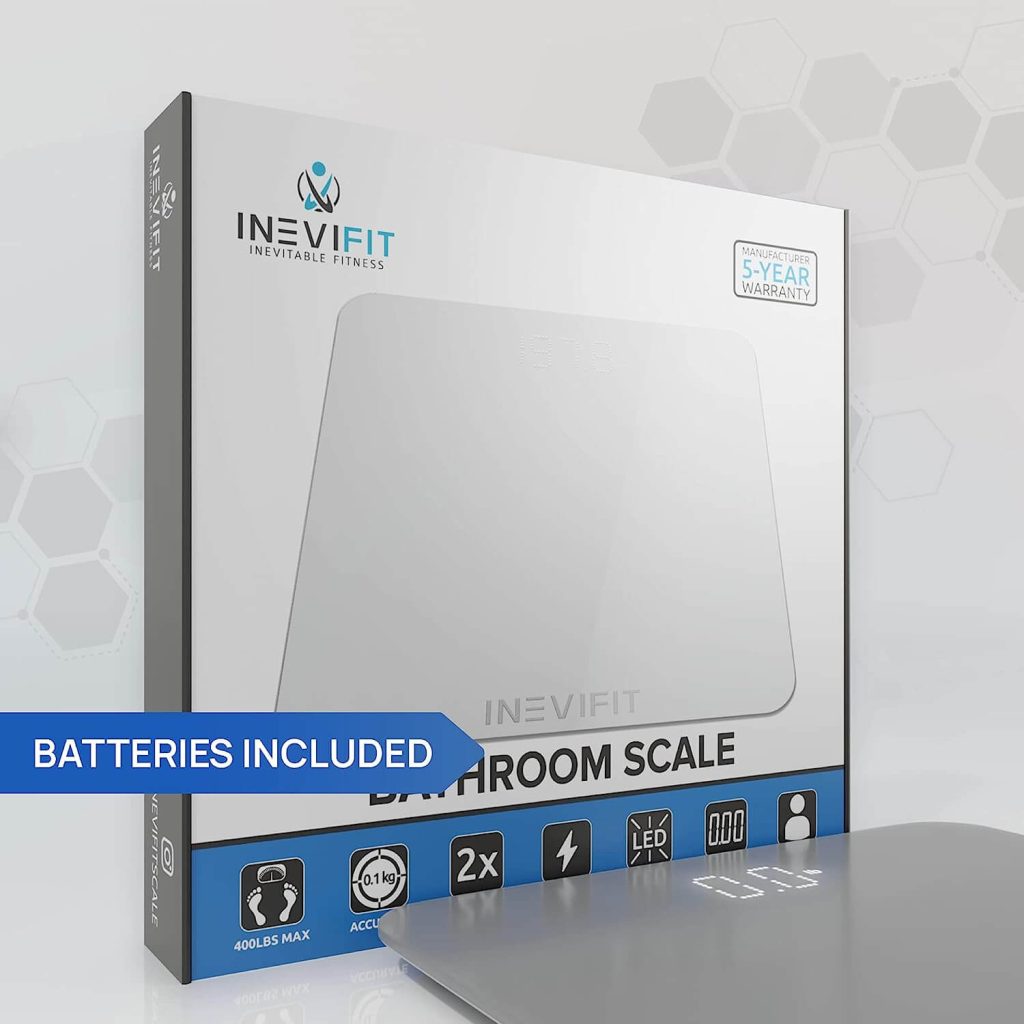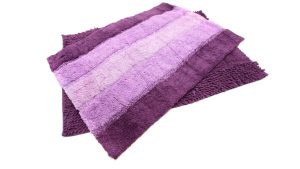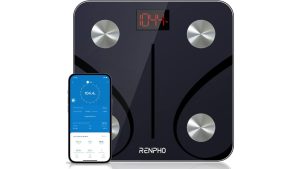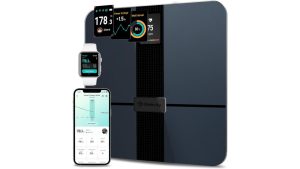Top-rated scales for weight loss include brands such as Fitbit, Withings, and Etekcity that offer accurate and reliable measurements. These scales are designed to help users track their progress, stay motivated, and achieve their weight loss goals.
With features like Bluetooth connectivity, body composition analysis, and user-friendly interfaces, these scales provide a convenient way to monitor and manage weight. Whether you’re looking for a basic scale or a more advanced option with additional features, these top-rated scales cater to a variety of needs. Start your weight loss journey on the right track with these highly recommended scales.
Top Rated Scales For Weight Loss
When it comes to weight loss, using a scale can be an essential tool to help you track your progress and stay motivated. However, with so many options available in the market, choosing the right scale can be overwhelming. In this blog post, we will discuss the top-rated scales for weight loss and provide insights into why using a scale is beneficial, and the factors you should consider when selecting one.
Why Use Top-Rated Scales For Weight Loss?
Using a top-rated scale for weight loss can have numerous benefits. Here’s why:
- Keeps you accountable: A scale provides a concrete measurement of your progress, making it easier to stay on track with your weight loss goals.
- Allows for adjustments: By regularly monitoring your weight, you can make necessary adjustments to your diet and exercise routine to ensure you are moving in the right direction.
- Motivates and rewards: Seeing the numbers on the scale change can be incredibly motivating and serves as a reward for your efforts.
- Tracks body composition: Many advanced scales offer body composition analysis, allowing you to monitor changes in muscle mass, body fat percentage, and more.
Factors To Consider When Choosing A Scale
Before purchasing a scale for weight loss, take into account the following factors:
1. Digital vs. Analog Scales
Digital scales are recommended for their accuracy and ease of use. Unlike analog scales, they provide precise readings and often have additional features such as memory storage and auto-calibration.
2. Accuracy and Precision
Look for scales that offer high accuracy and precision. This ensures that your weight measurements are reliable and consistent, helping you stay on top of your progress and make informed decisions.
3. Body Composition Analysis
If you are interested in tracking more than just your weight, consider scales that offer body composition analysis. These scales use advanced technology to measure metrics like body fat percentage, muscle mass, water weight, and bone density.
4. Connectivity and App Integration
Many modern scales come with connectivity options and can sync with smartphone apps. This allows you to easily track and analyze your data over time, helping you gain deeper insights into your weight loss journey.
5. User-Friendly Design and Features
Opt for scales with a user-friendly design and additional features that make weighing yourself a breeze. Look for features like a large, easy-to-read display, step-on activation, auto-shutoff, and non-slip surface.
Benefits Of Using A top rated Scales For Weight Loss
Using a scale for weight loss can be a highly effective tool in helping you achieve your goals. Several benefits come with incorporating a scale into your weight loss journey. By tracking your progress and setting goals, you can have a clear understanding of how far you’ve come and what you still need to accomplish.
This can help you stay accountable and motivated throughout your weight loss journey. Additionally, a scale can help you monitor your overall health by providing important data such as body fat percentage and muscle mass. In this article, we will explore the top-rated scales for weight loss and the benefits they offer.
Track Progress And Set Goals
One of the primary benefits of using a scale for weight loss is the ability to track your progress and set clear goals. An accurate scale can provide you with real-time data, allowing you to understand your current weight and how it may be changing over time. This information can help you stay motivated by showing you concrete evidence of your progress.
Moreover, having a scale at home allows you to regularly monitor your weight, enabling you to make adjustments to your diet and exercise routine as needed. It’s important to note that weight loss is not always linear, and there may be fluctuations along the way. However, a scale can help you identify patterns and trends, providing valuable insights into your weight loss journey.
Stay Accountable And Motivated
Another advantage of using a scale for weight loss is the accountability it brings. By regularly weighing yourself, you establish a sense of responsibility and commitment to your goals. Seeing the numbers on the scale can serve as a reminder of the progress you’ve made and the work that still needs to be done.
In addition, a scale can help you stay motivated by allowing you to set specific weight loss goals. By breaking down your overall weight loss target into smaller, manageable milestones, you can celebrate your achievements along the way. Each time you reach a goal, you’ll be motivated to continue pushing forward, knowing that you’re making tangible progress.
Monitor Overall Health
Using a scale for weight loss goes beyond simply tracking your weight. Many scales offer additional features that allow you to monitor your overall health. Some scales can measure your body fat percentage, muscle mass, and even your hydration levels.
These metrics can provide a more comprehensive understanding of your body composition, helping you make informed decisions about your health and fitness goals. By regularly monitoring these indicators, you can ensure that your weight loss is not just about shedding pounds but about making positive changes to your overall well-being.
Understanding your body fat percentage, for example, can help you determine if you are losing fat or muscle mass during your weight loss journey. In conclusion, using a scale for weight loss can offer numerous benefits.
From tracking your progress and setting goals to staying accountable and monitoring your overall health, a scale is a valuable tool in your weight loss arsenal. By selecting one of the top-rated scales available, you can optimize your weight loss journey and achieve your desired results.
Digital Vs. Analog Scales: Which Is Better?
Discover the best scales for weight loss and compare the benefits of digital and analog options. Choose the top-rated scale that suits your needs for accurate and convenient weight tracking.
Advantages Of Digital Scales
Digital scales have gained immense popularity among fitness enthusiasts and weight loss seekers for several reasons. Here are the key advantages of digital scales:
- Precise and Accurate Measurements: Digital scales utilize advanced technology to provide precise and accurate weight measurements. They often have sensors that can detect even the slightest weight change, ensuring you get reliable readings.
- Ease of Use: Digital scales are extremely user-friendly. With their clear digital displays and straightforward controls, you can easily see your weight and switch between units of measurement, such as pounds or kilograms, with just a press of a button.
- Additional Features: Many digital scales come equipped with additional features that can enhance your weight loss journey. These may include body fat analyzers, BMI calculators, and memory functions to track your progress over time.
- Modern Design: Digital scales often boast a sleek and modern design, making them a visually appealing addition to your bathroom or bedroom. They can seamlessly blend in with your decor while providing essential weight monitoring.
Advantages Of Analog Scales
While digital scales are highly convenient and accurate, analog scales still have their merits. Here are the advantages of analog scales:
- No Need for Batteries or Power Source: Analog scales operate without the need for batteries or a power source. This makes them reliable and always available for use, even during power outages or when you forget to replace the batteries in your digital scale.
- Durable and Long-lasting: Analog scales are known for their durability. With sturdy construction and mechanical systems, they can last for years without needing repairs or replacements.
- Simple and Straightforward: Analog scales offer a simplistic weighing experience. There are no digital displays or complicated settings to navigate. You step on the scale, read the needle, and there you have your weight.
- Cost-Effective: Analog scales are often more affordable compared to their digital counterparts. If you’re on a budget, an analog scale can deliver accurate results without breaking the bank.
Considerations For Choosing Between Digital And Analog
When deciding between digital and analog scales, several factors should be considered:
- Accuracy and Precision: If you prioritize precise weight measurements and additional features such as body fat analysis, a digital scale would be the ideal choice.
- Convenience and Ease of Use: If simplicity and user-friendly operation are important to you, a digital scale with its clear display and intuitive controls would be the better option.
- Reliability and Durability: If you prefer a scale that doesn’t rely on batteries and can withstand daily use without needing frequent maintenance, an analog scale may be more suitable.
- Style and Aesthetics: If you value a modern and visually appealing design in your scales, a digital scale can complement your decor.
- Budget: Consider your budget and the price range you’re willing to invest in a scale. Digital scales tend to be pricier due to their advanced features, while analog scales are more budget-friendly.
Ultimately, the choice between digital and analog scales boils down to your personal preferences, needs, and budget. Both types have their advantages and drawbacks, so weigh the pros and cons before making your decision.
- Accuracy: INEVIFIT scales are known for providing precise weight measurements.
- Ease of Use: The Step-On technology allows users to step on the scale and get instant readings without tapping or pressing buttons.
- Design: The tempered glass surface not only looks sleek but is also easy to clean.
- LCD Display: The large and clear display makes it easy to read weight measurements.
- Auto-Calibration: Many INEVIFIT scales come with auto-calibration features, ensuring accurate readings over time.
- Body Composition Analysis: Some models offer additional features like body fat percentage, muscle mass, and other body composition metrics.
-
Durability: The tempered glass and high-quality materials contribute to the scale’s durability.
- Price: INEVIFIT scales might be relatively more expensive compared to basic models on the market.
- Limited Features: Some models may lack advanced features found in higher-end smart scales.
- Power Source: Depending on the model, it may use batteries, and the need for replacements can be considered a drawback by some users.
- Connectivity: If you’re looking for a smart scale, ensure compatibility with your preferred fitness apps, as not all INEVIFIT scales may offer the same level of connectivity.
Accuracy And Precision: Why They Matter on a Scale
Achieving weight loss goals requires careful monitoring of your progress, and this is where the accuracy and precision of a scale come into play. When it comes to choosing a scale for weight loss, accuracy and precision are essential factors to consider. In this section, we will help you understand the importance of accuracy and precision in weight measurement, and provide useful tips on how to determine the accuracy and precision of a scale.
Understanding Accuracy And Precision
Accuracy and precision are two distinct but interrelated concepts when it comes to weight measurement. Accuracy refers to how close a scale’s reading is to the true weight of an object, while precision reflects the consistency and repeatability of the measurements obtained. Imagine stepping on a scale multiple times and consistently getting the same weight.
This indicates a high level of precision. However, if the displayed weight is consistently different from your known weight, then the scale is inaccurate. Achieving accurate and precise weight measurements is crucial to accurately track your progress and make informed decisions regarding your weight loss journey.
Importance Of Accuracy And Precision In Weight Measurement
Accurate and precise weight measurement is vital for several reasons:
- Monitoring Progress: To effectively track your weight loss progress, you need a scale that provides reliable and consistent measurements. Only with accurate and precise weight data can you make adjustments to your diet and exercise routine accordingly.
- Setting Realistic Goals: A scale that accurately measures your weight allows you to set achievable weight loss goals. By having precise measurements, you can have a clear understanding of your starting point and set realistic targets for yourself.
- Identifying Plateaus and Patterns: Plateaus and patterns are common during weight loss journeys. An accurate and precise scale helps you identify these phases, providing insights into adjustments that may be required to break through plateaus or maintain progress.
- Motivation: Seeing progress on a scale can be incredibly motivating. Consistently obtaining accurate and precise measurements allows you to celebrate milestones and stay motivated on your weight loss journey.
How To Determine The Accuracy And Precision Of A Scale
Determining the accuracy and precision of a scale before making a purchase is essential. Here are some steps you can take:
1. Check for Calibration:
A well-calibrated scale is crucial for accurate weight measurement. Look for scales that offer calibration options or come with calibration weights to ensure precise readings.
2. Read Customer Reviews:
Reading reviews from other users can provide valuable insights into the accuracy and precision of a particular scale. Look for feedback regarding consistency in measurements and whether users have verified the scale’s reliability.
3. Consider the Scale’s Features:
Look for features that promote accuracy and precision, such as high-quality sensors, digital displays, and automatic zeroing. These features can enhance the overall performance of the scale and deliver reliable weight measurements.
4. Test the Scale:
Once you have chosen a scale, perform a simple test to ensure its accuracy and precision. Use known weights, like household items with a specified weight, and compare the scale’s readings against the known weights. Repeat this process a few times to gauge the scale’s consistency.
Remember, selecting a scale with high accuracy and precision is crucial to effectively track your weight loss progress. By understanding these concepts and performing due diligence in choosing a reliable scale, you can enhance your weight loss journey and stay motivated on the path to a healthier you.
Body Composition Analysis: Going Beyond Weight Measurement
When it comes to weight loss, understanding your body composition is key. It goes beyond just knowing your weight. Body composition analysis provides a comprehensive assessment of your body’s composition, including muscle mass, body fat percentage, and water weight. This valuable information can help you track your progress and make informed decisions on your weight loss journey.
Understanding Body Composition Analysis
Body composition analysis refers to the measurement of different components that make up your body. While traditional scales only provide your total weight, body composition scales take it a step further by offering a detailed breakdown of your body composition. This includes the proportion of lean muscle mass, body fat, and water in your body. By understanding these factors, you can have a more accurate reflection of your overall health and fitness.
Additional Measurements Provided By Body Composition Scales
Body composition scales provide various additional measurements that give you a deeper insight into your body’s makeup. Apart from weight, these scales can measure:
- Body Fat Percentage: Knowing your body fat percentage is crucial as it indicates the proportion of fat in your body. This measurement is particularly useful for individuals who are looking to lose weight or improve their body composition.
- Muscle Mass: Measuring muscle mass helps you monitor changes in muscle growth and development. It can be especially beneficial for athletes or those engaged in strength training.
- Water Weight: Water constitutes a significant portion of your body, and fluctuations in water weight can impact your overall weight. Body composition scales can assess your water weight, providing insights into hydration levels.
Benefits Of Body Composition Analysis
There are several benefits to incorporating body composition analysis into your weight loss journey:
- Accurate Progress Tracking: By using body composition scales, you can accurately track changes in your body composition over time. This allows you to see the progress you’re making beyond just the number on the scale.
- Personalized Approach: Understanding your body composition can help you tailor your weight loss approach. Whether you need to focus on building muscle or losing fat, this information can guide you toward a more effective and personalized strategy.
- Motivation and Accountability: Seeing the progress you’ve made in terms of muscle gain or fat loss can be highly motivating. Additionally, body composition analysis holds you accountable by allowing you to identify areas where improvement is needed.
- Health Monitoring: Body composition analysis is not just about weight loss. It provides valuable information about your overall health. By keeping track of your body composition, you can identify potential health risks and take steps to maintain a healthy balance.
Connectivity And App Integration: Enhancing The Tracking Experience
If you are on a weight loss journey, you probably understand the importance of tracking your progress. And what better way to enhance your tracking experience than by choosing a scale with connectivity and app integration? These innovative features not only make it easier to monitor your weight loss goals but also provide valuable insights that can help you stay motivated on your fitness journey.
The Role Of Connectivity In Weight Loss Tracking
In today’s digital age, connectivity has become an integral part of our everyday lives. And when it comes to weight loss tracking, it can play a crucial role in helping you achieve your goals. With a connected scale, you can effortlessly sync your weight data to your smartphone or fitness app, allowing you to monitor your progress anytime, anywhere. This real-time access to your weight data enables you to make data-driven decisions and make adjustments to your fitness routine as needed, ensuring you stay on track toward your weight loss objectives.
Benefits Of App Integration With Weight Loss Scales
App integration takes weight loss tracking to a whole new level by providing a comprehensive and interactive experience. When your scale seamlessly integrates with a fitness app, it allows you to not only track your weight but also monitor other crucial metrics like body fat percentage, muscle mass, and even hydration levels. This holistic view of your health can help you gain a deeper understanding of your body composition and make more informed decisions regarding your weight loss journey.
Moreover, app integration often offers additional features like goal setting, progress tracking, and even personalized recommendations. You can set specific weight loss targets and receive notifications or reminders to keep you accountable and motivated. Some apps also provide valuable tips, expert guidance, and access to a community for support and encouragement, creating a sense of camaraderie and making your weight loss journey a shared experience.
Considerations For Choosing A Scale With Connectivity And App Integration
When it comes to selecting a scale with connectivity and app integration, there are a few key considerations that can help you make the right choice:
- Compatibility: Ensure that the scale and app you choose are compatible with your smartphone or device. Check for compatibility with both iOS and Android systems to ensure a smooth and hassle-free user experience.
- App Features: Take some time to explore the features offered by the app that accompanies the scale. Look for features that align with your specific weight loss goals, such as goal setting, progress tracking, or even personalized recommendations.
- Data Privacy: Your weight and other health data are personal information, so it’s essential to choose a scale and app that prioritize your privacy and data security. Look for scales that offer encryption and secure data storage.
- User-Friendly Interface: Opt for a scale and app with an intuitive user interface that is easy to navigate and understand. A clutter-free design and clear visual representations can enhance your tracking experience and make it more enjoyable.
By considering these factors, you can choose a scale with connectivity and app integration that aligns with your preferences and requirements. Remember, the right scale can make a significant difference in your weight loss journey, providing you with the tools and insights needed to achieve your goals.
User-friendly Design And Features: Making Weight Tracking Easy
Essential Features To Look For In Weight Loss Scales
- Accurate Measurement: The scale should provide accurate and consistent readings to help you track your progress effectively.
- Multiple Measurement Units: Look for a scale that offers different measurement units such as pounds, kilograms, or stones, depending on your preference.
- Large Display: Having a scale with a large, easy-to-read display ensures that you can quickly check your weight without straining your eyes.
- Sturdiness and Durability: A durable scale that can withstand regular use is essential for long-term weight tracking.
Design Factors That Enhance User Experience
- Sleek and Slim Profile: A scale with a sleek and slim profile not only adds an aesthetic touch to your bathroom or bedroom but also saves space.
- Non-Slip Surface: Look for a scale with a non-slip surface to ensure safety and stability while weighing yourself.
- Ergonomic Design: An ergonomic design with a comfortable platform and easy-to-use buttons ensures a seamless user experience.
- Auto On/Off Feature: An auto on/off feature allows the scale to turn on automatically when you step on it and turn off when not in use, saving both energy and effort.
Additional Features That Enhance Weight Loss Journey
- Body Composition Analysis: Some scales offer advanced features to measure body fat percentage, muscle mass, bone density, and more, giving you a comprehensive understanding of your body composition.
- Bluetooth Connectivity: Weight loss scales with Bluetooth connectivity allow you to sync your weight data with fitness apps or smart devices for convenient tracking and analysis.
- Memory Function: A scale with a memory function can store multiple user profiles and keep track of your progress over time.
- Goal Setting and Tracking: Look for a scale that allows you to set weight loss goals and track your progress towards achieving them, providing motivation and accountability.
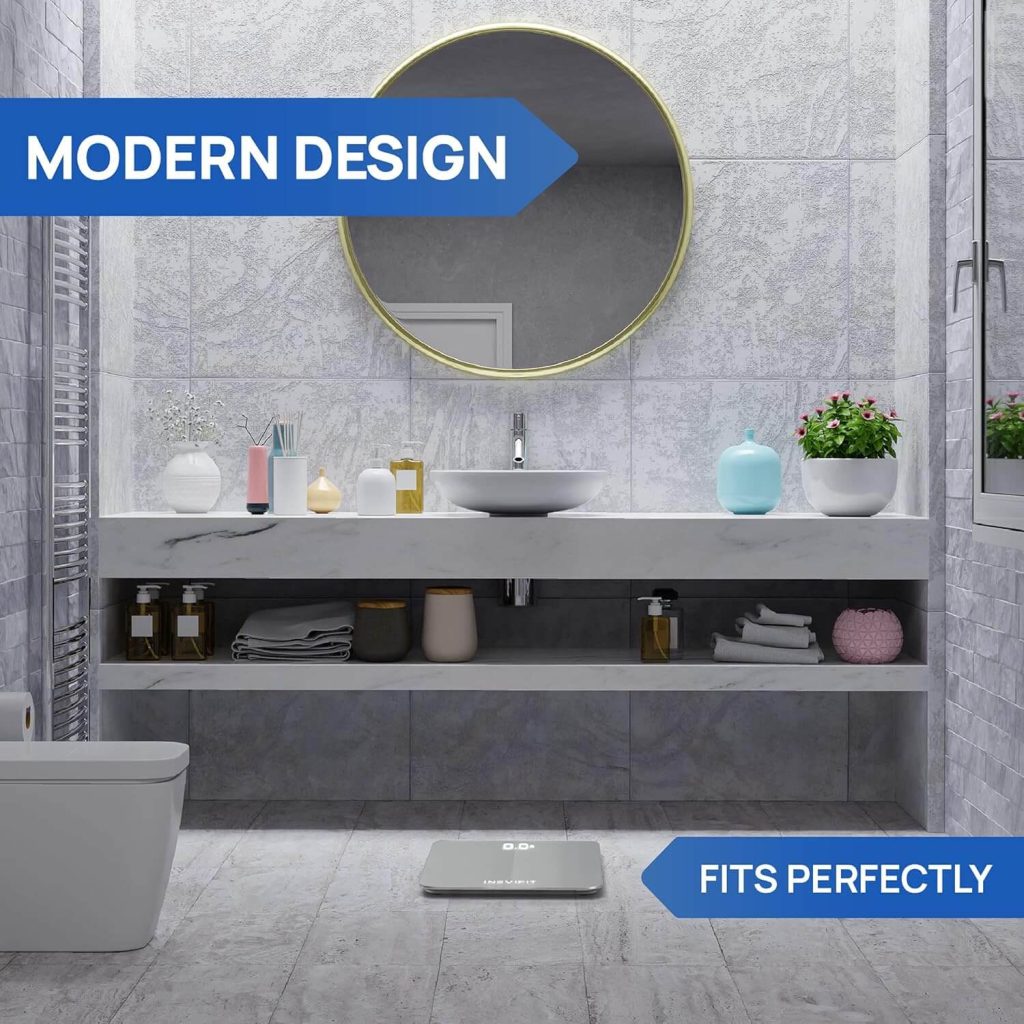
Which Type Of Weight Scale Is Most Accurate?
Digital weight scales are the most accurate type of scales. They provide precise measurements in increments of ounces or grams. With their advanced technology and digital display, they are reliable and easy to read.
What Are The Best Scales To Weigh Yourself On?
The best scales to weigh yourself on are digital scales with high accuracy and precision. These scales are easy to read, provide consistent results, and often come with additional features like body composition tracking. Look for a reliable brand and read customer reviews to find the best one for you.
What Are The Most Accurate Balance Scales?
The most accurate balance scales are those made with precision engineering, like laboratory-grade digital scales or analytical balances. They offer precise measurements and reliable results for scientific and commercial purposes.
Why is a reliable scale important for weight loss?
A reliable scale is crucial for tracking progress accurately. It helps you monitor weight changes, set realistic goals, and stay motivated on your weight loss journey.
What features should I look for in a weight loss scale?
Look for scales with high precision, multiple user profiles, a large and easy-to-read display, and additional features like body composition analysis (BMI, body fat percentage, etc.).
Are smart scales worth considering?
Yes, smart scales sync data to your phone or fitness app, providing a comprehensive view of your progress. They often include advanced metrics beyond weight, such as muscle mass and water weight.
Do all scales measure body composition?
No, not all scales provide body composition metrics. Choose a scale with bioelectrical impedance analysis (BIA) or dual-frequency technology for more accurate readings.
How often should I weigh myself for weight loss?
Weigh yourself consistently, such as once a week, at the same time of day, and under similar conditions. Daily fluctuations are normal, so focus on the overall trend.
Can I trust the accuracy of weight loss scales?
High-quality scales are generally accurate, but factors like floor stability and user error can affect readings. Calibrate your scale periodically and use it on a flat, hard surface. Top Rated Scales for Weight Loss.
Conclusion
To wrap it up, these top-rated scales for weight loss are essential tools to track your progress and achieve your health goals. With their accurate measurements, user-friendly features, and sleek designs, they offer convenience and motivation on your fitness journey.
Whether you prefer a smart scale or a traditional one, you can find the perfect option to suit your needs. Start tracking your weight loss today and stay on the path to a healthier you! top-rated scales for weight loss.

